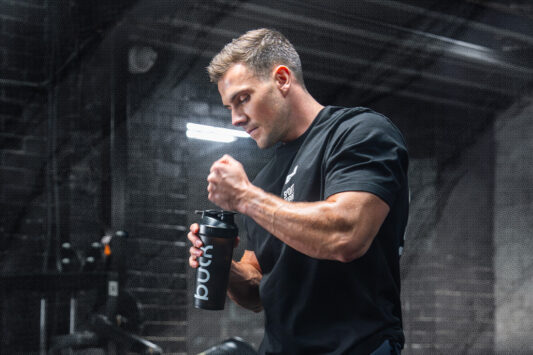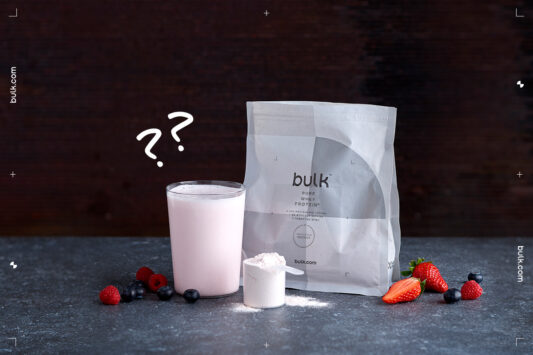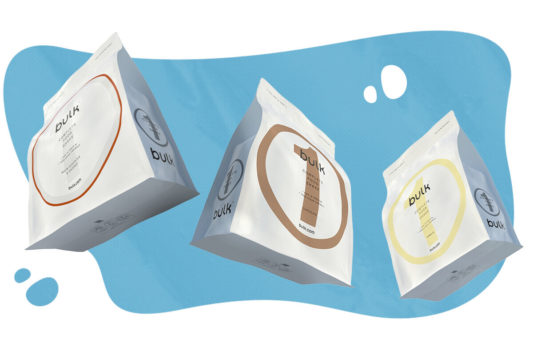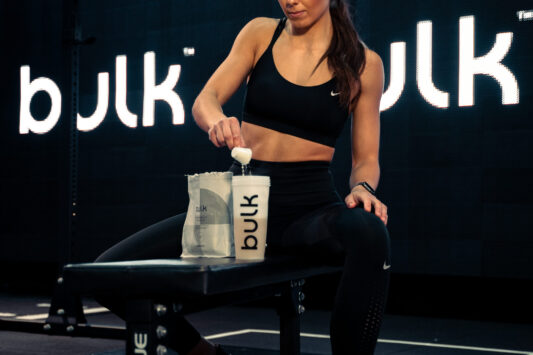There are many factors to consider when you kick off your fitness or health journey, each playing a part in getting you to your goal.
One aspect that often takes centre stage is nutrient timing. Whether it’s deciding what to eat before a workout or figuring out the perfect post-workout snack, the timing of your nutrient intake can be a game-changer. This includes when to drink protein shakes.
In this article, we’ll be looking at protein shake timing, and whether there is a good or bad time to drink protein shakes in the first place.
When is the best time to drink protein shakes?
Generally, it’s best practice to focus more on the overall consumption of protein rather than the exact timing of when you have it. Having said this, it’s still important to consider consuming protein within 2 hours post-exercise for optimal muscle recovery.
Additionally, consuming protein before bed is also a valid option for muscle growth and recovery.

How many protein shakes per day?
This largely depends on your goals, but up to 1-2 per day is usually best practice for the purpose of conveniently increasing protein intake throughout the day.
However, someone who participates in intense sports activities may have a higher requirement for protein and, thus may require more protein shakes during the day.
Professional strongmen, for example, have three large protein shakes per day. This is not recommended, of course, unless you happen to be going for the next world record deadlift.
Is it better to drink a protein shake before a workout or post-workout?
Drinking protein shakes before or after a workout depends on the nature of the exercise, the type of protein you’re consuming, and personal preference.
For example, if you’re trying to build muscle and you’re about to hit the gym to do a resistance training workout, it’s recommended to incorporate protein both before and after your session to optimise muscle growth and recovery. It induces a significant rise in muscle protein synthesis.
On the other hand, if you’re heading out for a 5k run, prioritising pre-run carbohydrates is more important for fuelling purposes. A post-run protein intake is more beneficial here.
Ultimately, whether you drink a protein shake before or after a workout, or both, is down to individual preference. A protein shake at any time is not a necessity, so it overall depends on your goal.
Does the type of protein powder matter?
The type of protein powder you’re drinking is also a key factor, considering the different absorption rates of protein. Whey protein concentrate is fast-digesting, while casein protein has a slower rate of digestion. Opting for a slow-digesting protein shake before a workout might not be the most effective strategy.
But really, drinking a protein shake after any kind of exercise is generally good practice for optimal recovery, though drinking one before working out is not always necessary and would depend on the type of exercise.
Endurance workouts may not demand a pre-workout protein shake, whereas resistance-based activities benefit from protein intake beforehand.

When is it too late to drink protein post-workout?
The concept of the anabolic window (“window of opportunity”), was once thought to be a narrow time frame immediately following exercise. It’s the idea that nutrients must be consumed within 20-60 minutes post-workout.
However, this has gone under review in the past few years, with a study published in the J Int Soc Sports Nutrition challenging this traditional belief.
Emerging evidence suggests that this anabolic window is a little bigger than we thought and that it may extend up to two hours. The study delves into some intricate details of why this is, but essentially it’s down to protein intake, amino acid availability, and the temporal aspects of post-exercise nutrition.
Whether you choose to consume a protein shake five minutes after working out or two hours, will largely depend on when you consumed your pre-workout snack or meal. The closer you consume nutrients to your workout, the further away your post-workout meal or shake can be.
This window offers a more practical and adaptable approach to optimising post-exercise nutrition, where we can now be more flexible with our timing.
Is it better to drink protein shakes in the morning or at night?
Whether you drink protein shakes in the morning or night depends on your individual preferences and goals. There are benefits to both:
Protein shakes in the morning offer a nice breakfast boost of protein, promoting satiety, as well as being very convenient for those with busy schedules, offering a quick and portable source of nutrition.
On the other hand, protein shakes at night (specifically casein protein) can support muscle recovery during sleep, helping the body to repair and rebuild through the night. A bedtime protein shake also helps stave off late-night hunger, especially if you’ve had an early dinner.
It’s down to personal preference. Choose a timing that aligns best with your routine.
When to drink protein shakes for muscle gain
To optimise muscle gain, the timing of protein consumption is an important consideration. While total daily protein is key, strategically distributing protein, particularly around specific periods, can help enhance muscle protein synthesis and recovery.
Some of these specific periods include pre-workout, post-workout, in between meals, before bed, and upon waking.
When to drink a protein shake for weight loss
In terms of weight loss, it’s less about when to drink a protein shake and more about which type of protein powder to drink.
Eating or drinking protein can be a helpful component of a weight loss plan. Protein is known for promoting satiety and preserving lean muscle mass, so consuming enough daily protein is key.
There are also times where you can incorporate a protein shake to help with weight loss include between meals as a snack, pre-workout, post-workout, or before bedtime.
On top of the strategic timing of consuming protein, it’s also good practice to consider the type of protein. Some forms of protein that may be beneficial include:
Whey protein: A high-quality, complete protein that is quickly absorbed by the body.
Casein: A slower-digesting protein compared to whey, making it a good option for prolonged satiety.
Pea protein: An easy-to-digest, plant-based protein powder that is an excellent choice for those with dairy sensitivities or who prefer a plant-based powder.
Collagen protein: An easily dissolvable powder that supports skin and joint health.
When choosing a protein powder for weight loss, you’ll want to consider the calorie content first and foremost, followed by the nutritional value and protein content.

Frequently Asked Questions: When to drink protein shakes
Should I have a protein shake for breakfast?
Having a protein shake for breakfast has many benefits, including convenience and portability. If your schedule doesn’t allow enough time to prepare breakfast in the morning, a protein shake is a great option, particularly if it’s before or after a workout.
Should I drink protein shakes every day?
While protein shakes can be a convenient and effective way to meet your protein requirements, they should still be part of a broader, more well-rounded diet.
Drinking protein shakes every day may be appropriate for some individuals, especially those with high protein needs, but it’s key to consider individual factors and consult a nutritionist if needed.
Related articles
What is Clear Whey Isolate? Alcohol and muscle growth
Protein shake: before or after workout? Different types of protein powder
Protein shakes for weight loss How much protein can your body absorb
Protein shakes with milk or water How protein powder is made
Best supplements for muscle growth Whey vs whey isolate














